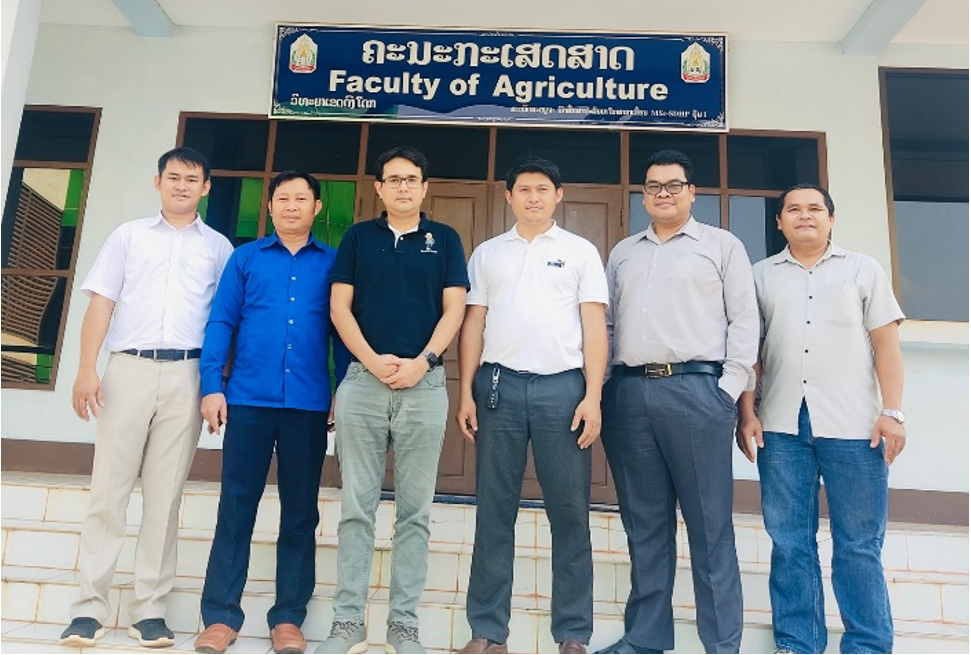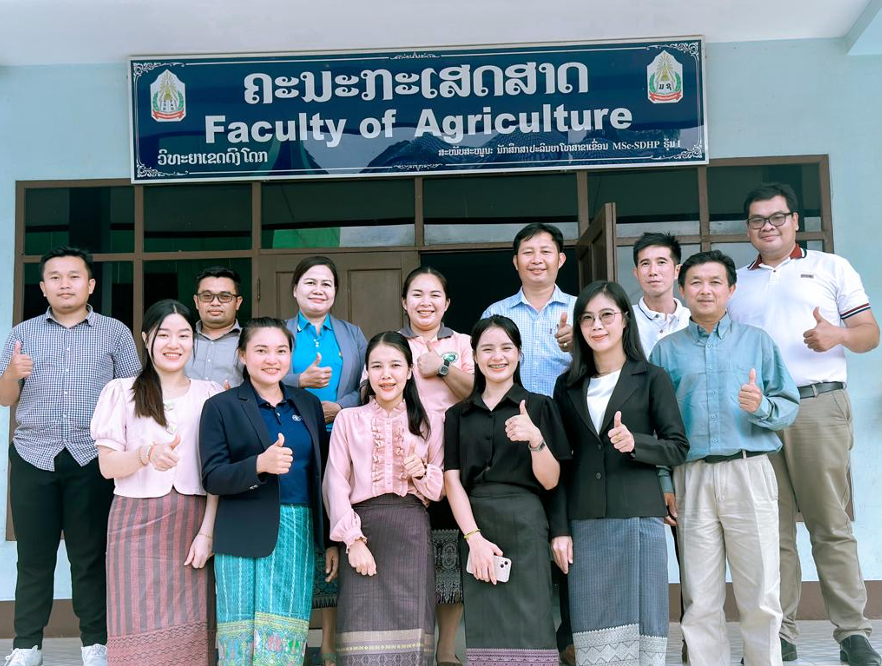Empowering Veterinary Epidemiology Capacity in Laos
Veterinary epidemiology skills are considered essential for the animal health workforce to prevent, detect and control infectious animal diseases. A recent survey recognised that veterinary epidemiology skills are in short supply in Laos, where there are relatively few qualified veterinarians (Subharat et al., 2023). Laos is considered a major thoroughfare for animal trade between its neighbouring countries and China in Southeast Asia, critical for the regional spread of major transboundary animal diseases (TADs). The livestock industry in Laos faces considerable challenges from various livestock diseases, leading to substantial economic losses and negatively affecting food security and public health.
Laos relies largely on animal science graduates due to a shortage of qualified veterinarians. Veterinary education was unavailable until the National University of Laos established a veterinary department in 2009, with its first graduates in 2014. Resource gaps persist in recruiting new veterinarians to public service. Although there are some opportunities for Laotian veterinarians to improve their veterinary epidemiology skills, such as through programs like the Field Epidemiology Training Programs for Veterinarians (FETPVs) in Thailand and occasional in-service training supported by donors, these options are extremely scarce. Given the constraints of limited resources and the demand for specialised expertise, an evident gap needed to be bridged.
The Asia Pacific Consortium for Veterinary Epidemiology (APCOVE) has developed eLearning modules that address key competencies for field veterinary epidemiology, i.e. outbreak investigation, surveillance, data analysis, risk analysis, One Health, biosecurity, leadership and communication to strengthen the veterinary workforce in Asia-Pacific, including Laos. However, the trainees from Laos encounter various obstacles when attempting to complete the modules on their own, such as language barriers and technical difficulties. In order to support these trainees, APCOVE has initiated a pilot training of trainers (ToT) program for field veterinary epidemiology training within Laos.
The ToT initiative was carefully designed through a collaborative effort of the APCOVE member partners, including the EpiCentre, School of Veterinary Science, Massey University (led by Dr Art Subharat) and the Department of Veterinary Medicine, Faculty of Agriculture, National University of Laos (led by Dr Vannaphone Phouthana). This effort aimed to utilise the APCOVE eLearning modules and case studies, build the capacity of facilitators and mentors and foster a ripple effect of knowledge dissemination within Laos.
From 6-10 February 2023, Dr Art Subharat visited and conducted the initial phase of the ToT program for five senior lecturers from the Department of Veterinary Medicine, Faculty of Agriculture, National University of Laos in Vientiane (Figure 1). The team collaboratively finished the APCOVE eLearning modules and discussed strategies for the subsequent training. Then, the team of lecturers transitioned into trainers and delivered the follow-up training of APCOVE eLearning modules on 12 – 16 June 2023. This session was attended by 11 participants, including academics and the Provincial Livestock and Fisheries Officers from various provinces of Laos (Figure 2). The trainees highly valued the course and provided positive feedback, indicating its effectiveness. Nonetheless, it was noted that the modules would benefit from translation into the Laos language to ensure enhanced comprehension and broader dissemination. The translation process is underway and would contribute to a more effective learning experience and wider reach among participants.
The activity was funded through APCOVE by the Australian Department of Foreign Affairs and Trade (DFAT).


Reference
Subharat, S., Meunsene, D., Putthana, V., Tiwari, H., & Firestone, S. M. (2023). Field epidemiology capacity of the national veterinary services of Lao PDR: An online survey. Frontiers in Veterinary Science, 10. doi:10.3389/fvets.2023.1096554